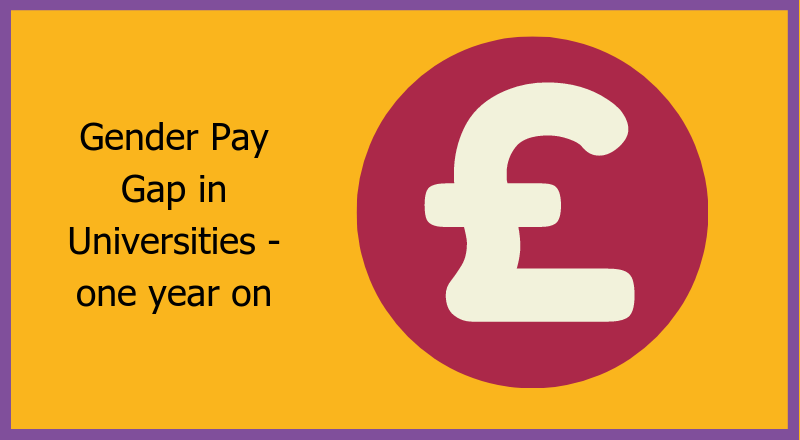Times Higher Education (THE) reports slow progress on closing the gender pay gap in UK Universities.
Times Higher Education (THE) reports slow progress on closing the gender pay gap in UK Universities.
The Government Equalities Office published the data for the second year last week (Friday, 5 April). Gender Pay Gap data submission is a legal requirement for every employer with 250 or more employees. They must publish the differences between what they pay their male and female staff in average salaries and bonuses.
Times Higher have analysed this data and found that of the 228 higher education institutions to have published data in 2018, 46 were shown to have widened their gap for 2019. While all institutions still report pay in favour of men, 192 universities did reduce their mean average hourly pay gap by 0.1 per cent or more.
So who improved their pay gap the most?
Falmouth University decreased their pay gap between 2017 and 2018 by 8.2%, while Queen Mary University of London decreased their pay gap by 8% and York St John decreased by 6.9%.
University of Worcester retains its crown as the university with the lowest gender pay gap, decreasing it even further from the previous year, with a mean pay gap of 2.1%. Second and third place in HE go to Leeds Art University and Solihull College and University Centre with a mean gap of 2.6%.
If you’re a university or college and want to reduce your gender pay gap, the Government offers some guidance online.
However, why not hear more from the sector about what you can do to contribute towards SDG 10 (Reduced Inequalities) by watching our 15 minute webinar full of helpful case studies.
The webinar looks at:
1) University of Edinburgh - A whole institution approach to combating modern slavery
2) Advance HE (formerly the Equality Challenge Unit (ECU), the Higher Education Academy (HEA) and the Leadership Foundation for Higher Education (LFHE) - Athena SWAN charter, Race Equality Charter
3) University of Worcester - The lowest gender pay gap in the sector
Watch here.
The Government Equalities Office published the data for the second year last week (Friday, 5 April). Gender Pay Gap data submission is a legal requirement for every employer with 250 or more employees. They must publish the differences between what they pay their male and female staff in average salaries and bonuses.
Times Higher have analysed this data and found that of the 228 higher education institutions to have published data in 2018, 46 were shown to have widened their gap for 2019. While all institutions still report pay in favour of men, 192 universities did reduce their mean average hourly pay gap by 0.1 per cent or more.
So who improved their pay gap the most?
Falmouth University decreased their pay gap between 2017 and 2018 by 8.2%, while Queen Mary University of London decreased their pay gap by 8% and York St John decreased by 6.9%.
University of Worcester retains its crown as the university with the lowest gender pay gap, decreasing it even further from the previous year, with a mean pay gap of 2.1%. Second and third place in HE go to Leeds Art University and Solihull College and University Centre with a mean gap of 2.6%.
If you’re a university or college and want to reduce your gender pay gap, the Government offers some guidance online.
However, why not hear more from the sector about what you can do to contribute towards SDG 10 (Reduced Inequalities) by watching our 15 minute webinar full of helpful case studies.
The webinar looks at:
1) University of Edinburgh - A whole institution approach to combating modern slavery
2) Advance HE (formerly the Equality Challenge Unit (ECU), the Higher Education Academy (HEA) and the Leadership Foundation for Higher Education (LFHE) - Athena SWAN charter, Race Equality Charter
3) University of Worcester - The lowest gender pay gap in the sector
Watch here.











